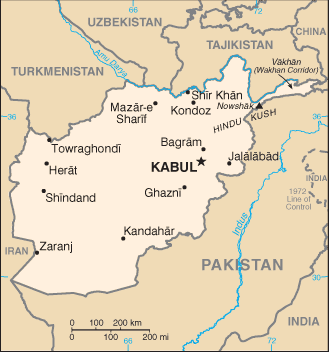A United Nations report today cautioned that the eight year long war in Afghanistan is increasingly taking place in residential neighborhoods, with both the Taliban insurgency and the international forces killing enormous numbers of civilians as they duke it out over control of the nation.
 But today’s report was hardly the first indication that the war is going poorly, and that July in particular is a month which has seen an enormous number of records broken and new “worst month” reports.
But today’s report was hardly the first indication that the war is going poorly, and that July in particular is a month which has seen an enormous number of records broken and new “worst month” reports.
46 foreign troops were killed in August 2008, the previous high. Incredibly, that number was equaled on July 15, and continued to rise hitting at least 70 by month’s end. 42 American troops died in July, also a new record, and 22 British soldiers died, the worst month that nation has seen since the 1980’s.
As the US continues to commit more troops to the war, it takes more and more aggressive stances, like launching the Helmand River Valley offensive, the largest the nation has seen since the Soviet occupation. But it has little to show for its escalation, with attacks on the rise and deaths among both allies and bystanders reaching ever higher levels.
Secretary of Defense Robert Gates has conceded that the US most show some sign of improvement in the nation within a year, or it risks long international support. There is certainly no sign that is going to happen, but the bigger question is: how much worse is it going to get in the mean time?


